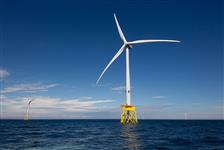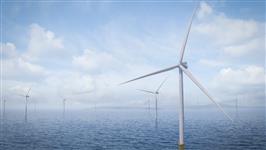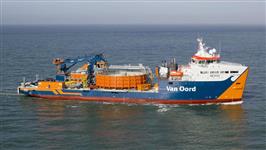
UK Slips in Renewable Energy Investment Attractiveness, EY Reports
Posted 14/11/2023 14:56
The United Kingdom has fallen from fourth to seventh place in EY's Renewable Energy Country Attractiveness Index (RECAI), signaling a decline in its appeal to international clean energy investors. EY publishes the RECAI biannually, and the latest edition cites concerns over grid connection delays as a key factor influencing the attractiveness of the UK market for renewable energy projects.
The top position in the RECAI is retained by the United States, with the attractiveness bolstered by a multi-billion-dollar subsidy package provided through the Inflation Reduction Act. This package has proven effective in stimulating solar investment, contributing to the US's continued lead in investor confidence.
Germany maintains its second position overall, commended for successful offshore wind auctions and significant installations in the first nine months of 2023. China holds the third spot, while France, climbing to fourth place, prepares for an upcoming offshore wind auction in late 2024. Australia and India secure the fifth and sixth positions, respectively.
EY points out several reasons why the UK has lost ground in attractiveness to investors. The government's delay in responding to subsidy packages, such as the Inflation Reduction Act, and the failure to update the Contracts for Difference (CfD) auction scheme to address economic challenges in offshore wind supply chains are cited as deterrents. The recent CfD round, although successful for various projects, saw no offshore wind bids, indicating investor concerns about supply chain costs.
Grid connection delays are identified as a significant issue in the UK, with a 65% increase in delivery timelines for Nationally Significant Infrastructure Projects (NSIPs) between 2012 and 2021. Developers face prolonged waiting times for grid connections, impacting the timely return on investment. National Grid is working on reforms to address the 'first come, first served' grid connections model, prioritizing projects more strategically.
The UK government is exploring CfD process reforms that consider non-price factors, and discussions on potential changes are underway. However, EY emphasizes that swift responses from other governments, including Germany, Lithuania, and the Netherlands, have positioned them more favorably in the eyes of investors.
EY's chief editor for the RECAI, Ben Warren, suggests that incorporating non-price factors like environmental considerations and job creation could attract developer interest and increase bids. The UK's grid connection challenges and delays are acknowledged globally, but other governments have demonstrated quicker responses, according to Warren.
The RECAI findings coincide with reports that no new applications for onshore wind farms in England have been made since the government eased planning rules in September. The UK's position in the RECAI underscores the importance of addressing grid connection delays and updating policy frameworks to maintain investor confidence and competitiveness in the global renewable energy market.








